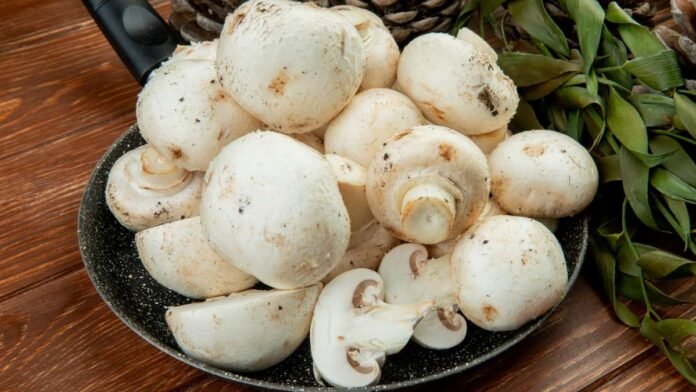For generations, mushrooms Have added earthiness and meatiness to our cuisine. These strange delights, called “meat of the vegetable world,” defy description. Mushrooms serve a unique role in fungi ecology, and current study reveals they’re nutritional powerhouses worthy of the moniker “superfood.”
But, the fact is that not everyone enjoys mushrooms. Their texture, earthy aroma, or even the way they look can be off-putting to some. This detailed guide discusses superfood mushrooms’ five health benefits that will make you add them to your diet:
1. Immune System Ally: Defenses
Mushrooms protect you naturally. The selenium, vitamin D, and B vitamins in them keep you healthy. Selenium promotes antioxidant enzyme production to protect cells from free radicals. Vitamin D increases immunity and reduces inflammation after injury or infection. We require B vitamins, notably B6, to create red blood cells and antibodies that fight infections. Eat mushrooms for many immune system benefits.
2. Every Bite Has Essential Nutrients
Don’t trust their reduced calories! Superfood mushrooms are vitamin and mineral powerhouses. They include vitamin D, which boosts bones and immunity. These minerals help your body function, including selenium, potassium, and copper. As said, selenium increases immunity and antioxidants. Copper is needed for energy production and collagen synthesis, which keeps skin, bones, and connective tissues healthy, whereas potassium is needed for muscle and nerve function.
3. Brain Health Benefits of Noggin Care
Lion’s mane and cordyceps mushrooms may boost intellect, which delights experts. Mushroom compounds may boost nerve growth factor (NGF), a protein needed for brain cell development, repair, and maintenance. Studies show NGF influences learning, memory, and cognition. These cognitive-enhancing mushrooms may improve brain health, cognition, and Alzheimer’s risk. Research is needed to confirm these benefits.
4. Strong Gut Microbiome
The complex gut microbiome of bacteria impacts digestion, nutrition, and immunity. Shiitake and oyster mushrooms are gut-healthy superfoods. Fiber-rich foods fill you up and aid digestion. Prebiotics, gut microbe-feeding fiber, are also present. By diversifying gut flora, mushrooms aid digestion, inflammation, and immunity. Mushrooms support digestive and overall health.
5. Fighting Free Radicals for Health with Antioxidants
Heart disease and cancer are linked to oxidative stress and inflammation. The body and environment produce unstable molecules called free radicals that destroy cells. More antioxidant-rich mushrooms save the day. Glutathione and ergothioneine protect cells from free radicals. Consuming mushrooms may prevent oxidative damage and prolong life.
Beyond the Basics: Savoring Variety
The world of mushrooms goes beyond these five health benefits. More than 10,000 mushroom varieties are available for every taste. From the humble button mushroom (Agaricus bisporus) to the exotic maitake (Grifola frondosa), or “hen of the woods,” mushrooms have numerous flavors, textures, and cooking purposes. Cook them, grill them, roast them, or add them to vegetarian stews and broths.
How to Add Superfood Mushrooms To Your Diet
Superfood mushrooms are a wonderful way to boost your health due to their health benefits and culinary diversity. Tips for starting:
- Slowly add a couple of mushroom varieties to your diet. This adjusts your palate and prevents stomach troubles from sudden fiber intake.
- Fresh, dried, and powdered mushrooms exist. For cooking, dried mushrooms can be reconstituted in water, but fresh mushrooms taste and feel finest. Mix powdered mushrooms into smoothies, soups, or scrambled eggs for extra nutrients.
- Creatively experiment with food! Mushrooms adapt to numerous meals. Creative cooking ideas:
- Breakfast Powerhouse: Sauté sliced portobello mushrooms with spinach and garlic for a protein-rich omelet filling.
- Umami Soup: Chopped shiitake mushrooms, tofu, and wakame seaweed make a delightful, immune-boosting miso soup.
- Vegan Wonders: Instead of ground meat, cut cremini mushrooms, lentils, and walnuts for a hearty burger.
- A wonderful, healthy side dish is roasted maitake mushrooms with olive oil, balsamic vinegar, and fresh herbs.
Eco-friendly supplier selection
Before consuming, consider sustainable superfood mushrooms. Here are some tips:
- Mushrooms from surrounding farms are best found at farmers markets or supermarkets. Local businesses benefit as transportation emissions decrease.
- Certified Organic: Choose organic mushrooms whenever possible. This protects them from pesticides and synthetic fertilizers.
- Wild mushroom hunting demands extreme caution. Gather only edible varieties. Ask a local mycological society or professional forager for advice.
You can eat nutritious mushrooms while lowering your environmental impact with these methods.
Mushrooms go beyond flavor. They provide a wealth of natural immune system, brain, digestive, and overall health advantages. Next time you shop at the grocery store, don’t underestimate these multipurpose superfoods! Enjoy the culinary adventure and add mushroom varieties into your diet for a healthier, more



